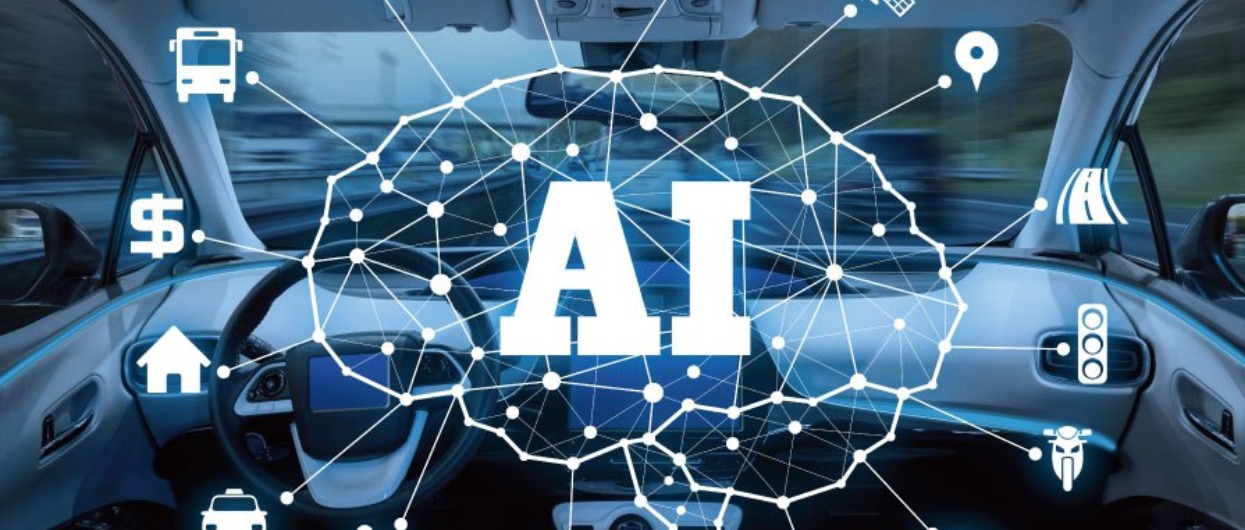AI-driven Navigation: Revolutionizing How We Travel
The Role of AI in Navigation
AI-driven navigation systems are transforming how drivers interact with their vehicles and the road. These systems use real-time data and machine learning algorithms to optimize routes, enhance safety, and improve driving experiences.
Key Features
-
Real-Time Traffic Analysis: AI systems analyze traffic patterns to suggest the fastest routes, reducing travel time and congestion.
-
Dynamic Route Adjustment: When unexpected obstacles arise, such as accidents or road closures, AI systems can quickly recalibrate routes for efficiency.
-
Personalized Driving Experience: AI considers driver preferences and habits to offer tailored navigation solutions.
AI-based Safety Systems: Enhancing Vehicle Safety
Advanced Safety Features
Artificial intelligence plays a critical role in developing safety systems that minimize accidents and enhance driver awareness. These AI-based systems are integral to modern vehicles, contributing to their overall safety profile.
Innovations in Safety
-
Collision Avoidance Systems: AI predicts potential collisions and initiates preventive measures by analyzing sensor data.
-
Driver Monitoring: AI detects signs of driver fatigue or distraction, issuing alerts to refocus attention.
-
Pedestrian Detection: AI systems identify pedestrians and cyclists, warning drivers or automatically adjusting vehicle controls to prevent accidents.
Benefits and Challenges
While AI-based safety systems offer numerous benefits, they also face challenges such as:
-
System Reliability: Ensuring consistent performance in diverse environments and conditions.
-
Integration with Existing Technologies: Harmonizing AI systems with traditional vehicle components and infrastructure.
AI in Manufacturing: Streamlining Production Processes
AI's Impact on Automotive Manufacturing
AI is revolutionizing automotive manufacturing by optimizing production processes, enhancing quality control, and increasing efficiency. The integration of AI technologies in factories is reshaping how vehicles are built.
Applications in Manufacturing
-
Automated Quality Inspections: AI systems identify defects and inconsistencies in real-time, ensuring high-quality production standards.
-
Predictive Analytics: AI analyzes historical data to forecast demand and optimize inventory management.
-
Robotic Process Automation (RPA): AI-powered robots perform repetitive tasks with precision, reducing human error and improving productivity.
Advantages and Considerations
AI in manufacturing offers significant advantages, including:
-
Cost Reduction: Streamlined processes lead to reduced operational costs.
-
Enhanced Precision: AI ensures high precision in manufacturing, improving product quality.
Challenges include:
-
Integration Complexity: Integrating AI systems into existing infrastructure can be complex and costly.
-
Workforce Transition: Shifting workforce dynamics as AI automates traditional roles.
AI for Predictive Maintenance: Maximizing Vehicle Longevity
The Importance of Predictive Maintenance
Predictive maintenance powered by AI is transforming how vehicles are maintained, preventing costly breakdowns and extending the lifespan of automotive components.
AI-Driven Maintenance Solutions
-
Real-Time Monitoring: AI systems continuously monitor vehicle health, detecting anomalies and predicting potential failures.
-
Data-Driven Insights: AI analyzes data from sensors and historical records to forecast maintenance needs.
-
Automated Alerts: Drivers receive timely alerts for necessary maintenance, preventing unexpected issues.
Benefits and Challenges
Predictive maintenance offers numerous benefits, including:
-
Cost Savings: Early detection of issues reduces repair costs and downtime.
-
Improved Reliability: Vehicles maintain optimal performance through proactive maintenance.
Challenges involve:
-
Data Privacy: Ensuring secure handling of vehicle and driver data.
-
Technological Dependence: Reliance on AI systems for maintenance decisions.
AI in Customer Experience: Personalizing Automotive Interactions
Enhancing Customer Experience with AI
AI is transforming the customer experience in the automotive industry, offering personalized interactions and services that cater to individual preferences.
AI-Powered Customer Solutions
-
Virtual Assistants: AI-driven virtual assistants provide drivers with information, support, and entertainment options.
-
Personalized Recommendations: AI systems analyze driver data to offer tailored services, such as maintenance reminders and travel suggestions.
-
Enhanced Connectivity: AI facilitates seamless integration between vehicles and smart devices, enhancing convenience.
Benefits and Challenges
AI enhances customer experience through:
-
Personalization: Customized interactions improve satisfaction and loyalty.
-
24/7 Support: AI systems offer continuous support, enhancing customer service.
Challenges include:
-
Data Security: Protecting sensitive customer information from breaches.
-
User Acceptance: Ensuring users are comfortable with AI-driven interactions.
Table: AI Applications in the Automotive Industry
|
AI Application
|
Function
|
Benefits
|
|
AI-driven Navigation
|
Optimizes routes and traffic management
|
Reduced travel time and congestion
|
|
AI-based Safety Systems
|
Enhances vehicle safety and driver awareness
|
Lowered accident rates and improved safety
|
|
AI in Manufacturing
|
Streamlines production and quality control
|
Increased efficiency and cost reduction
|
|
AI for Predictive Maintenance
|
Monitors vehicle health and predicts failures
|
Cost savings and enhanced reliability
|
|
AI in Customer Experience
|
Provides personalized interactions and services
|
Improved satisfaction and loyalty
|
Questions and Answers (QA)
Q1: How does AI improve navigation systems in vehicles?
A1: AI enhances navigation systems by analyzing real-time data to optimize routes, adjust for traffic conditions, and personalize the driving experience.
Q2: What are the main challenges of AI-based safety systems?
A2: Key challenges include ensuring system reliability, integration with existing technologies, and addressing user trust and acceptance.
Q3: How does AI impact automotive manufacturing efficiency?
A3: AI streamlines manufacturing processes through automated inspections, predictive analytics, and robotic automation, reducing costs and increasing precision.
Q4: What role does AI play in predictive maintenance?
A4: AI continuously monitors vehicle health, analyzes data to predict maintenance needs, and issues alerts to prevent breakdowns, maximizing vehicle longevity.
Q5: How does AI enhance customer experience in the automotive industry?
A5: AI provides personalized interactions through virtual assistants, tailored recommendations, and enhanced connectivity, improving customer satisfaction and loyalty.
Artificial intelligence is a driving force behind the transformation of the automotive industry, impacting navigation, safety, manufacturing, maintenance, and customer experience. As AI technologies continue to evolve, they promise to create a future of smarter, safer, and more efficient transportation systems.
